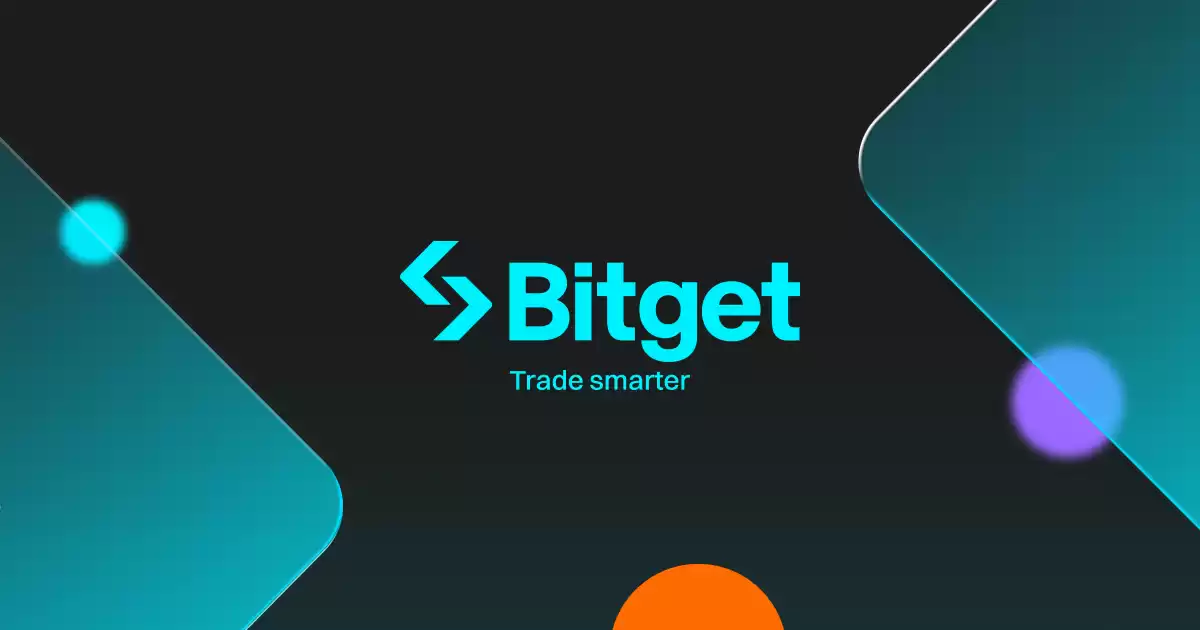-
 bitcoin
bitcoin $87959.907984 USD
1.34% -
 ethereum
ethereum $2920.497338 USD
3.04% -
 tether
tether $0.999775 USD
0.00% -
 xrp
xrp $2.237324 USD
8.12% -
 bnb
bnb $860.243768 USD
0.90% -
 solana
solana $138.089498 USD
5.43% -
 usd-coin
usd-coin $0.999807 USD
0.01% -
 tron
tron $0.272801 USD
-1.53% -
 dogecoin
dogecoin $0.150904 USD
2.96% -
 cardano
cardano $0.421635 USD
1.97% -
 hyperliquid
hyperliquid $32.152445 USD
2.23% -
 bitcoin-cash
bitcoin-cash $533.301069 USD
-1.94% -
 chainlink
chainlink $12.953417 USD
2.68% -
 unus-sed-leo
unus-sed-leo $9.535951 USD
0.73% -
 zcash
zcash $521.483386 USD
-2.87%
How to play Bitget delivery contracts
Bitget delivery contracts, a type of futures contract, allow traders to speculate on future price movements of cryptocurrencies with the potential for amplified profits and risks through margin trading.
Nov 11, 2024 at 04:26 pm

How to Play Bitget Delivery Contracts: A Comprehensive Guide
Delving into the realm of cryptocurrency derivatives can be an exciting yet daunting prospect. Bitget, a leading cryptocurrency exchange, offers a user-friendly platform for trading delivery contracts, providing traders with the opportunity to speculate on the future price movements of digital assets. This detailed guide will equip you with the knowledge and strategies to navigate the world of Bitget delivery contracts effectively.
Step 1: Understanding Delivery Contracts
Delivery contracts, also known as futures contracts, are agreements to buy or sell an underlying asset at a specified price and date in the future. The essence of these contracts lies in the obligation to deliver (for sellers) or take delivery (for buyers) of the underlying asset upon contract expiry. It is crucial to note that delivery contracts are not settled in the spot market like regular cryptocurrency trades; instead, they settle in the underlying asset itself.
Step 2: Choosing a Trading Pair
Bitget offers a wide selection of cryptocurrencies available for delivery contracts trading. The choice of trading pair depends on your market outlook and risk tolerance. Consider factors such as market capitalization, volatility, and liquidity when selecting a trading pair.
Step 3: Margin Trading vs. Regular Trading
Delivery contracts incorporate margin trading, allowing traders to leverage their positions using borrowed funds. Margin trading amplifies both potential profits and losses, so it is essential to use it cautiously. Regular trading, on the other hand, involves using your own funds without leverage.
Step 4: Order Types and Execution
Bitget provides various order types to suit different trading strategies. Limit orders allow you to specify the desired execution price, while market orders execute immediately at the best available market price. Stop-loss orders protect against significant losses by automatically executing sell orders when the market price falls below a predetermined level.
Step 5: Managing Risk
Risk management is paramount when trading delivery contracts. Set clear profit targets and stop-loss levels to minimize potential losses. Monitor market conditions closely and adjust your positions accordingly. Additionally, consider hedging strategies to protect against unfavorable price movements.
Step 6: Monitoring Your Positions
Bitget provides a comprehensive dashboard for monitoring your open positions, including real-time market data, profit/loss calculations, and margin requirements. Regularly review your positions, adjust leverage as needed, and close trades when necessary.
Step 7: Funding Your Account
To trade delivery contracts, you will need to fund your Bitget account with cryptocurrencies or stablecoins. The exchange supports multiple deposit methods to cater to different users' preferences.
Step 8: Understanding Market Indicators
Technical analysis can provide valuable insights into market trends and potential price movements. Bitget offers a suite of charting tools and market indicators to assist your trading decisions. These indicators help identify support and resistance levels, market momentum, and trend reversals.
Disclaimer:info@kdj.com
The information provided is not trading advice. kdj.com does not assume any responsibility for any investments made based on the information provided in this article. Cryptocurrencies are highly volatile and it is highly recommended that you invest with caution after thorough research!
If you believe that the content used on this website infringes your copyright, please contact us immediately (info@kdj.com) and we will delete it promptly.
- ETH Transfer Sparks Panic Selling, Wipes Out Trader in Major Crypto Shake-Up
- 2026-02-02 15:40:01
- Bitcoin’s Wild Ride: Crypto Market Faces Price Drop Amidst Extreme Fear and Macro Headwinds
- 2026-02-02 12:30:01
- Ross Stores Dominates Off-Price Retail with Brick-and-Mortar Prowess Amidst Economic Shifts
- 2026-02-02 13:20:01
- Cong, Leviste, DOE Slap: Billionaire Faces $24B Penalty Amidst Renewable Energy Promises
- 2026-02-02 13:20:01
- Bitcoin Vulnerabilities Exposed in Brutal Crypto Crash, Highlighting Market Immaturity
- 2026-02-02 13:15:02
- Unlocking Fortunes in Your Pocket: UK Coins Could Make You £1,000 Richer
- 2026-02-02 13:15:02
Related knowledge

How to close a crypto contract position manually or automatically?
Feb 01,2026 at 11:19pm
Manual Position Closure Process1. Log into the trading platform where the contract is active and navigate to the 'Positions' or 'Open Orders' tab. 2. ...

How to understand the impact of Bitcoin ETFs on crypto contracts?
Feb 01,2026 at 04:19pm
Bitcoin ETFs and Market Liquidity1. Bitcoin ETFs introduce institutional capital directly into the spot market, increasing order book depth and reduci...

How to trade DeFi contracts during the current liquidity surge?
Feb 01,2026 at 07:00am
Understanding Liquidity Dynamics in DeFi Protocols1. Liquidity surges in DeFi are often triggered by coordinated capital inflows from yield farming in...

How to use social trading to copy crypto contract experts?
Feb 02,2026 at 07:40am
Understanding Social Trading Platforms1. Social trading platforms integrate real-time market data with user interaction features, enabling traders to ...

How to trade micro-cap crypto contracts with high growth potential?
Feb 01,2026 at 02:20pm
Understanding Micro-Cap Crypto Contracts1. Micro-cap crypto contracts refer to derivative instruments tied to tokens with market capitalizations under...

How to optimize your workspace for professional crypto contract trading?
Feb 01,2026 at 08:20pm
Hardware Infrastructure Requirements1. High-frequency crypto contract trading demands ultra-low latency execution. A dedicated workstation with a mini...

How to close a crypto contract position manually or automatically?
Feb 01,2026 at 11:19pm
Manual Position Closure Process1. Log into the trading platform where the contract is active and navigate to the 'Positions' or 'Open Orders' tab. 2. ...

How to understand the impact of Bitcoin ETFs on crypto contracts?
Feb 01,2026 at 04:19pm
Bitcoin ETFs and Market Liquidity1. Bitcoin ETFs introduce institutional capital directly into the spot market, increasing order book depth and reduci...

How to trade DeFi contracts during the current liquidity surge?
Feb 01,2026 at 07:00am
Understanding Liquidity Dynamics in DeFi Protocols1. Liquidity surges in DeFi are often triggered by coordinated capital inflows from yield farming in...

How to use social trading to copy crypto contract experts?
Feb 02,2026 at 07:40am
Understanding Social Trading Platforms1. Social trading platforms integrate real-time market data with user interaction features, enabling traders to ...

How to trade micro-cap crypto contracts with high growth potential?
Feb 01,2026 at 02:20pm
Understanding Micro-Cap Crypto Contracts1. Micro-cap crypto contracts refer to derivative instruments tied to tokens with market capitalizations under...

How to optimize your workspace for professional crypto contract trading?
Feb 01,2026 at 08:20pm
Hardware Infrastructure Requirements1. High-frequency crypto contract trading demands ultra-low latency execution. A dedicated workstation with a mini...
See all articles










































































